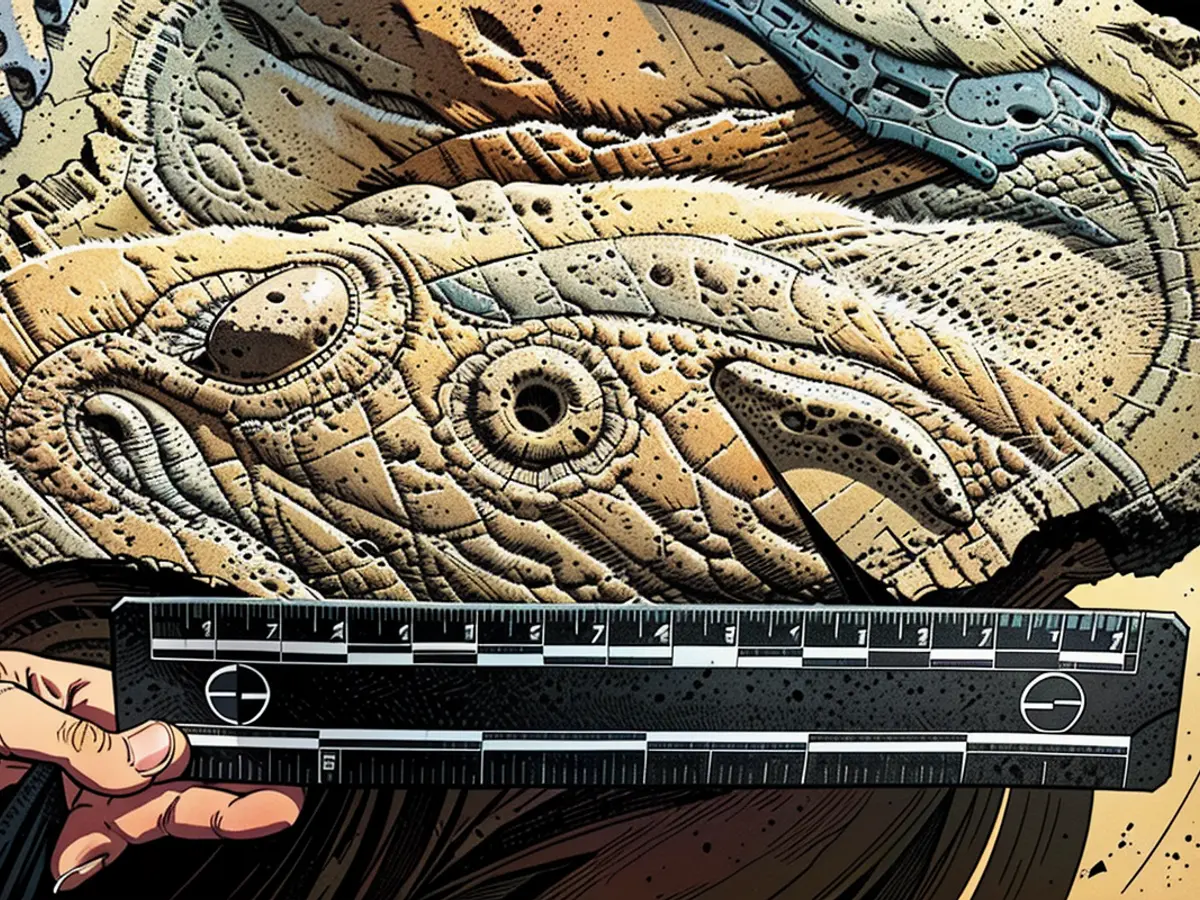Unprecedented dinosaur fossils unearthed in Hong Kong for the first time.
The fossils were uncovered on Port Island, a barren expanse of stones situated in the northeastern waters of the metropolis, by Hong Kong's Agriculture, Fisheries and Conservation Department in March, as per a statement issued on Wednesday by the government.
Scientists have concluded that the bone fossils presumably stemmed from a "large, elderly dinosaur" hailing from the Cretaceous period –– an epoch spanning over 145 million to 66 million years ago, succeeding the Jurassic period.
Hong Kong's Secretary for Development, Bernadette Linn, proclaimed that "this discovery holds significant importance and furnishes fresh evidence for research on palaeoecology in Hong Kong," as per the statement.
Since 1979, Port Island has been designated as a site of special scientific interest and is also a part of Hong Kong's UNESCO Global Geopark –– a collection of islands safeguarded by an international charter and primarily utilized for instruction and sustainable growth.
"Further investigations will be essential to pinpoint the species of the dinosaur," officials confirmed, adding that Port Island and the surrounding country park will be shut down for further diggings and research. The dinosaur fossils will also be displayed publicly at Hong Kong's Heritage Discovery Centre from Friday onwards.
Paleontologists concur that this groundbreaking discovery represents a significant milestone for Hong Kong, a city with a perplexing geological history and altered weather patterns.
"The only method through which we can discover dinosaur fossils is if there is a piece on the surface that we can spot," Michael Pittman, an assistant professor of life sciences at the Chinese University of Hong Kong, told CNN, further noting that the residues could have decomposed entirely had researchers arrived later.
Thus far, the only "dinosaur-era items" Hong Kong has found are plants and fish, he added.
Pittman also highlighted that the discovery of bodily fossils is relatively uncommon in the region, as skeletal remains are not typically unearthed in southern China, which is renowned instead for its dinosaur eggs.
However, since 2020, researchers from the Chinese Academy of Sciences have stumbled upon dinosaur remains buried shallowly across nine localities in the southwestern province of Yunnan, and have carried out excavations.
Earlier this year, paleontologists in China unearthed the fossils of a Gandititan cavocaudatus at a construction site in Jiangxi province. The fossils, estimated to date back 90 million years, represented a new dinosaur species yet to be documented in East Asia.
It remains unclear for how long Port Island will be off-limits to visitors.
"If they locate a complete skeleton of a huge dinosaur or even two dinosaurs, they might need to go back the following summer, and the summer after that," Pittman stated.
This discovery of dinosaur fossils on Port Island is a significant achievement for the team at Hong Kong's Agriculture, Fisheries and Conservation Department, as it contributes to the ongoing research in palaeoecology within the city. Us, as curious individuals, look forward to further investigations and the eventual display of these fossils at Hong Kong's Heritage Discovery Centre.









